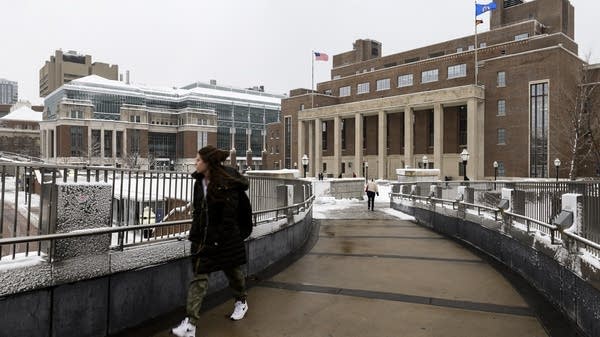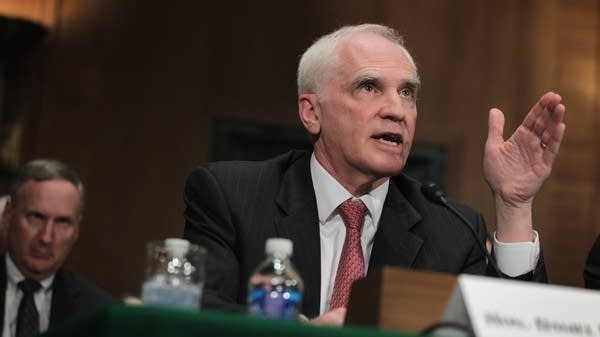How Trump's 100 days have shaped the global economy
Zanny Minton Beddoes, editor-in-chief of The Economist Magazine, discusses tariffs, U.S. economic outlook and a moment of global uncertainty.

Tuesday, April 29 marks 100 days of President Donald Trump's second term in office. This week on “Marketplace Morning Report,” we’re taking a look week at what this new administration has meant for the U.S. and world economies in that time.
We’re starting off the week with Zanny Minton Beddoes, editor-in-chief of The Economist Magazine. She spoke with “Marketplace Morning Report” host David Brancaccio. The following is an edited transcript of their conversation.
David Brancaccio: A central beat of your magazine over 180 years has been freer trade. So I guess, Zanny, you've lived to see it — the trade revolution before our eyes. I mean, I think you used the word. It is a revolution?
Zanny Minton Beddoes: It is a revolution. It's a revolution, actually, beyond trade. But on the economic side, this administration has imposed the biggest tariff hike probably in history. The IMF came out with its latest projections for growth just a few days ago, and they dramatically downgraded growth expectations for the United States. And the same is true of pretty much every bank. Everyone is expecting the U.S. to slow sharply, perhaps even hit a recession. And this is entirely self-induced.
Brancaccio: The administration tends to suddenly pivot on some of these crucial points of policy. Do you think this revolution is so ingrained now that it's going to stick?
Minton Beddoes: So I think there is going to be a huge amount of uncertainty about that, because you are seeing that when the markets react very, very badly, President Trump appears to pull back. But I think this is a president who really believes in tariffs, and because we don't really know what the end goal is — and you have a president who changes his mind, it seems, very frequently — I think the main thing that we can predict with some certainty is that we're going to be in for an incredibly uncertain period.
Brancaccio: I have been advancing a thesis here for quite a few weeks. Tell me if I'm wrong: Beyond America's legal system, the courts, it seems like the bond market and maybe the stock market, they're the last remaining check on executive power in America.
Minton Beddoes: Well, it's interesting. They are certainly — particularly the bond markets — playing a role as a check. And to have simultaneously, equity prices for bond yields rise, bond prices fall and the dollar fall is a combination that you don't usually see in the United States. And that combination is something you usually see in a kind of weak emerging economy, where investors suddenly lose confidence in the credibility of that economy completely and just want to get out of every asset that that economy has. And the really worrying thing right now in the last few weeks is that we've seen some hints that investors are having that attitude shift to the U.S. And about a third of U.S. Treasuries are held by foreigners. And if foreigners basically think Brand USA is damaged and they move out en masse, that means we can have a very serious financial crisis on top of slower growth and recession.













